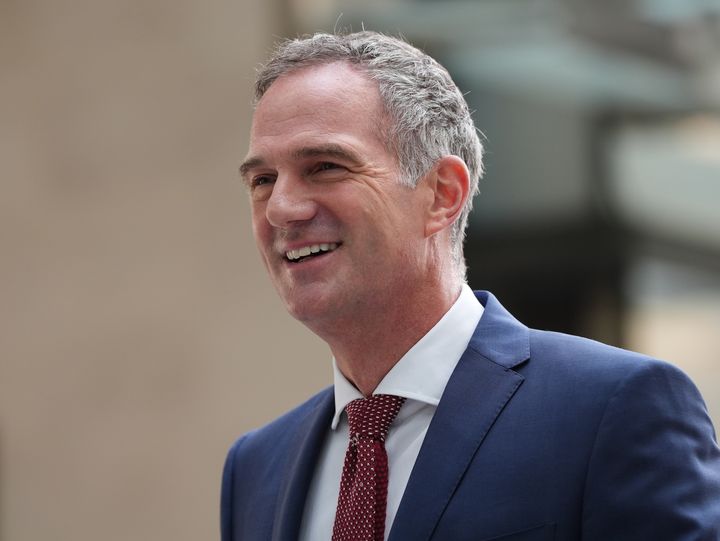Science
Universities Must Evolve: Peter Kyle Advocates for Specialisation

The Secretary of State for Science, Research and Innovation, Peter Kyle, has emphasized that universities must adapt significantly to meet the challenges of the upcoming decade. Speaking at the Universities UK conference in Exeter, he urged for increased specialization and collaboration within higher education to ensure financial sustainability and relevance in the 2030s.
Kyle pointed out that many institutions are currently competing for the same student demographic, which detracts from their ability to leverage their unique strengths. He stated, “One of the problems is that too many universities are competing for the same pool of students at the expense of playing to their relative strengths or truly specialising.” This competition is influencing how resources are allocated, he noted, which could hinder the sector’s recovery.
He firmly stated, “The university sector cannot recover to become what it looked like in the 2010s. It has to recover in a way that is fit for the 2030s and that is going to be digitally driven.” This statement underscores the need for institutions to not only adapt their offerings but also embrace new technologies and methodologies.
Kyle responded to concerns about potential cuts to university courses, indicating that a shift towards relevant fields is necessary. He mentioned a trend where more students are gravitating towards science and technology courses, reflecting the demands of the future economy. He suggested that if a university decides to reduce its arts program but invests in high-demand areas like space research, this could be beneficial overall. “Providing there are specialisms in other universities which are driving towards art, the move towards specialism is a positive,” he remarked.
In conjunction with his speech, Kyle announced a funding initiative of £9.7 million to support the National Centre for Universities and Business until 2029. This funding aims to enhance collaboration between academic institutions and the business sector. He expressed frustration over the underutilization of opportunities for commercialization within universities, stating, “We’re not touching the sides on what is possible in commercialising creativity and innovation.”
The challenges facing the sector were echoed by Lord Patrick Vallance, the science minister, who highlighted the difficulties in scaling start-up companies originating from universities. He noted that while there has been a rise in start-up spinouts in the UK, there is still a long way to go in ensuring these businesses evolve into sustainable large companies.
Recent data released in May 2024 revealed that more than two in five higher education institutions anticipate deficits for the 2024-25 academic year. This financial uncertainty has led several universities, including the University of Edinburgh, to announce redundancies and implement cost-cutting measures. The principal of the University of Edinburgh recently warned that the higher education sector is facing “serious and urgent financial challenges.”
In light of these developments, the UK Government is expected to release a White Paper outlining plans for higher education reform. Kyle also engaged with university leaders on the opportunities presented by artificial intelligence (AI). He acknowledged the challenges of controlling student use of AI but emphasized the importance of integrating it into academic practices responsibly. “You are not going to get AI out of the hands of students, but what you can do is find ways to embrace it in a proper academic way and monitor its use,” he said.
As universities navigate these complex challenges, the call for specialization and collaboration may be key to ensuring their relevance and financial stability moving forward.
-

 Entertainment2 months ago
Entertainment2 months agoIconic 90s TV Show House Hits Market for £1.1 Million
-

 Lifestyle4 months ago
Lifestyle4 months agoMilk Bank Urges Mothers to Donate for Premature Babies’ Health
-

 Sports3 months ago
Sports3 months agoAlessia Russo Signs Long-Term Deal with Arsenal Ahead of WSL Season
-

 Lifestyle4 months ago
Lifestyle4 months agoShoppers Flock to Discounted Neck Pillow on Amazon for Travel Comfort
-

 Politics4 months ago
Politics4 months agoMuseums Body Critiques EHRC Proposals on Gender Facilities
-

 Business4 months ago
Business4 months agoTrump Visits Europe: Business, Politics, or Leisure?
-

 Lifestyle4 months ago
Lifestyle4 months agoJapanese Teen Sorato Shimizu Breaks U18 100m Record in 10 Seconds
-

 Politics4 months ago
Politics4 months agoCouple Shares Inspiring Love Story Defying Height Stereotypes
-

 World4 months ago
World4 months agoAnglian Water Raises Concerns Over Proposed AI Data Centre
-

 Sports4 months ago
Sports4 months agoBournemouth Dominates Everton with 3-0 Victory in Premier League Summer Series
-

 World4 months ago
World4 months agoWreckage of Missing Russian Passenger Plane Discovered in Flames
-

 Lifestyle4 months ago
Lifestyle4 months agoShoppers Rave About Roman’s £42 Midi Dress, Calling It ‘Elegant’









